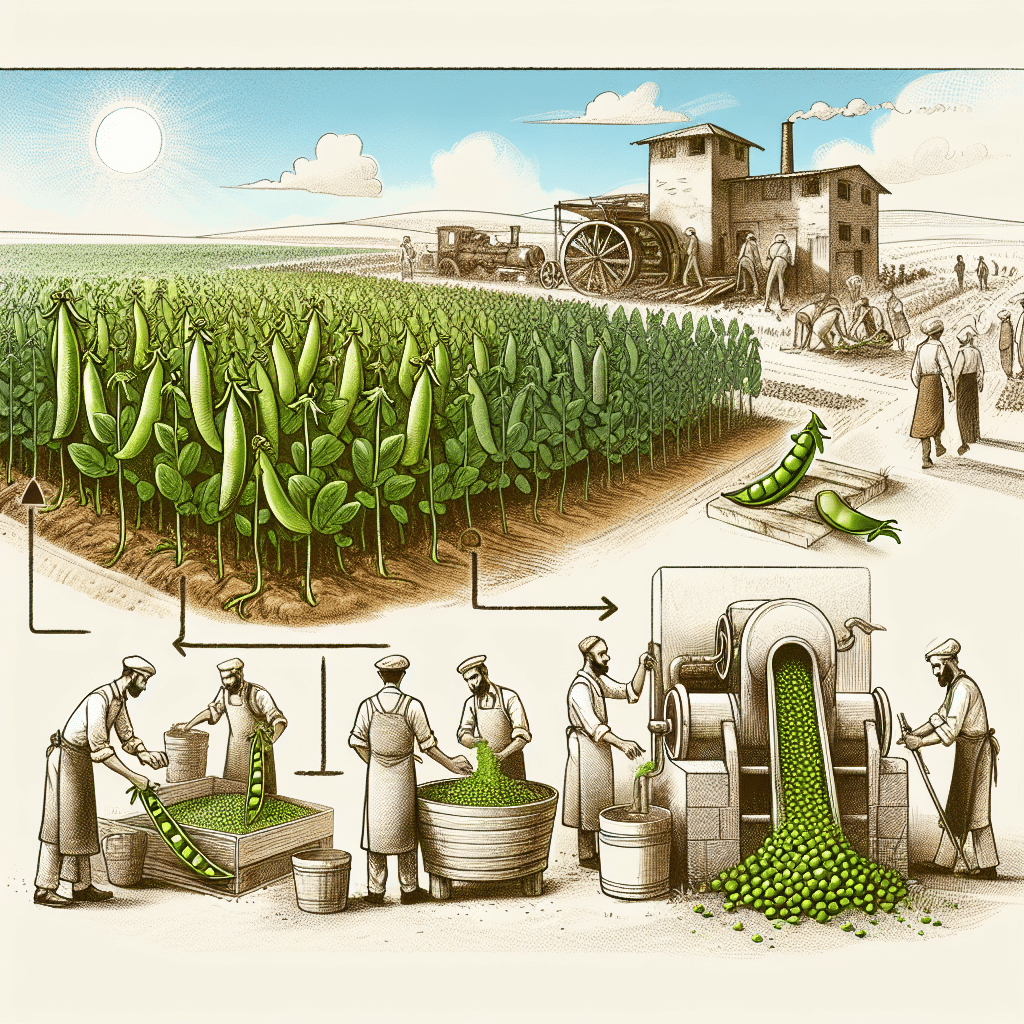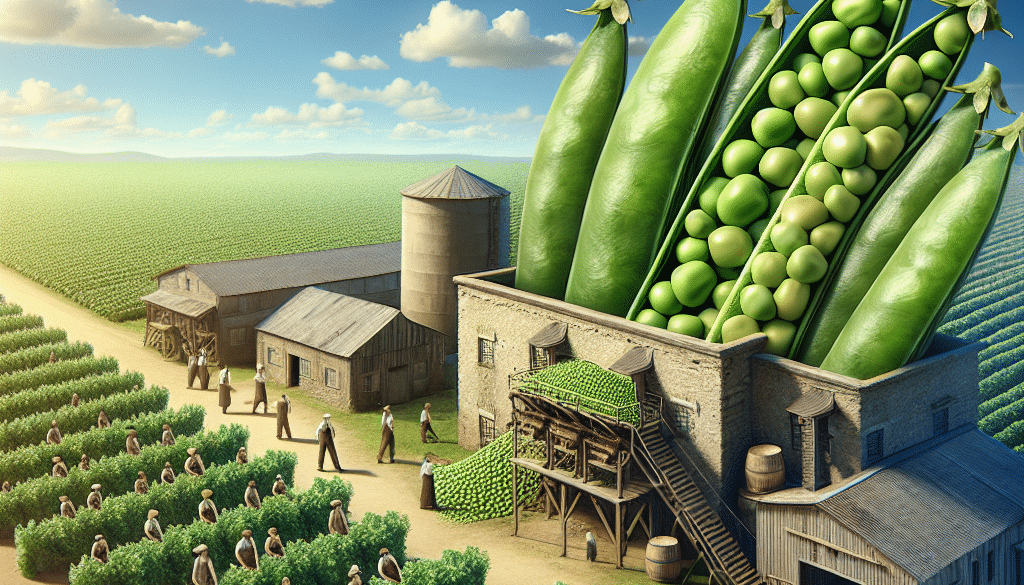Where Does Pea Protein Come From: Origin Story
-
Table of Contents
Where Does Pea Protein Come From: Origin Story

Pea protein has gained significant popularity in recent years as a plant-based alternative to animal-based protein sources. It is widely used in various food and beverage products, including protein powders, bars, and meat substitutes. But have you ever wondered where pea protein comes from? In this article, we will explore the origin story of pea protein and how it has become a staple in the plant-based protein market.
The Rise of Plant-Based Proteins
In recent years, there has been a growing demand for plant-based protein sources due to various factors such as health concerns, environmental sustainability, and ethical considerations. As a result, plant-based proteins have gained popularity among consumers looking for alternatives to traditional animal-based proteins.
Pea protein, in particular, has emerged as one of the leading plant-based protein sources. It offers several advantages over other plant-based proteins, such as soy and wheat, including its high protein content, allergen-free nature, and neutral taste. But where does pea protein come from?
The Origin of Pea Protein
Pea protein is derived from yellow peas, also known as Pisum sativum. These peas are a type of legume that has been cultivated for thousands of years for their nutritional value. They are rich in protein, fiber, vitamins, and minerals, making them an excellent source of nutrition.
The process of extracting pea protein involves several steps. First, the yellow peas are harvested and dried to remove excess moisture. Then, they are ground into a fine powder. The powder is then mixed with water to create a slurry, which is further processed to separate the protein from the other components of the pea.
One common method used to extract pea protein is wet fractionation. In this process, the slurry is subjected to centrifugation or filtration to separate the protein from the starch and fiber. The resulting protein-rich liquid is then dried to obtain pea protein powder.
The Benefits of Pea Protein
Pea protein offers several benefits that have contributed to its popularity in the plant-based protein market. Here are some of the key advantages of pea protein:
- High Protein Content: Pea protein is a complete protein, meaning it contains all nine essential amino acids that the body needs. It has a protein content of around 80-90%, making it comparable to animal-based proteins.
- Allergen-Free: Pea protein is free from common allergens such as gluten, dairy, and soy, making it suitable for individuals with food sensitivities or allergies.
- Neutral Taste: Unlike some other plant-based proteins, pea protein has a neutral taste, making it versatile and easy to incorporate into various recipes and products.
- Sustainable and Environmentally Friendly: Pea protein production has a lower environmental impact compared to animal-based protein sources. Peas require less water and land to grow, and they also have a lower carbon footprint.
Applications of Pea Protein
Pea protein is widely used in the food and beverage industry due to its nutritional profile and functional properties. Here are some of the common applications of pea protein:
- Protein Powders: Pea protein is a popular ingredient in protein powders, which are widely used by athletes, fitness enthusiasts, and individuals looking to increase their protein intake.
- Meat Substitutes: Pea protein is often used as a key ingredient in plant-based meat substitutes, providing a source of protein and helping to mimic the texture and taste of meat.
- Bakery Products: Pea protein can be used in the production of bakery products such as bread, cookies, and muffins, adding nutritional value and improving texture.
- Dairy Alternatives: Pea protein is also used in the production of dairy alternatives such as plant-based milk, yogurt, and cheese, providing a source of protein for individuals following a vegan or lactose-free diet.
Conclusion
Pea protein has emerged as a leading plant-based protein source, offering numerous benefits and applications. Derived from yellow peas, pea protein is a complete protein with a high protein content, allergen-free nature, and neutral taste. Its sustainable and environmentally friendly production process has also contributed to its popularity. As the demand for plant-based proteins continues to grow, pea protein is likely to remain a staple in the food and beverage industry.
About ETprotein
ETprotein, a reputable protein Chinese factory manufacturer and supplier, is renowned for producing, stocking, exporting, and delivering the highest quality organic bulk vegan protein and plant proteins. They include Organic rice protein, clear rice protein, pea protein, clear pea protein, pumpkin seed protein, sunflower seed protein, mung bean protein, etc. Our offerings, characterized by a neutral taste, non-GMO, allergen-free attributes, cater to a diverse range of industries. We serve nutraceutical, pharmaceutical, cosmeceutical, veterinary, as well as food and beverage finished product distributors, traders, and manufacturers across Europe, USA, Canada, Australia, Thailand, Japan, Korea, Brazil, and Chile, among others.
Our specialization includes exporting and delivering tailor-made protein powder and finished nutritional supplements. Our extensive product range covers sectors like Food and Beverage, Sports Nutrition, Weight Management, Dietary Supplements, Health and Wellness Products, and Infant Formula, ensuring comprehensive solutions to meet all your protein needs.
As a trusted company by leading global food and beverage brands and Fortune 500 companies, ETprotein reinforces China’s reputation in the global arena. For more information or to sample our products, please contact us and email sales(at)ETprotein.com today.














